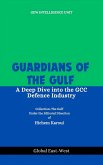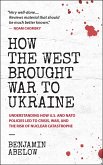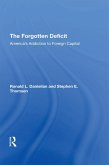The ongoing conflict in Ukraine has captured the attention of the international community, sparking widespread debate and concern. But as the world's focus shifted to the Middle East after the "Al-Aqsa Deluge," Ukraine was left to grapple with its own challenges.
The West's support for Ukraine dwindled as it prioritised the Israeli-Palestinian conflict, leaving Ukraine vulnerable to Russian influence. This abrupt change in priorities had far-reaching consequences for Ukraine's struggle for sovereignty and stability.
The narrative manipulation by Western governments and media further fuelled global perceptions of Israel's justification for its response to the Palestinian assault. This strategic manipulation of narratives distorted public opinion and overshadowed the complex realities of the conflict. The book discusses how global attention shifted from the conflict in Ukraine to the Israeli-Palestinian crisis, leading to a lack of support for Ukraine and a rise in Russian influence while emphasising the importance of holistic engagement and diplomatic rigour to address intertwined global crises.
Key Takeaways:
- Global focus shifted from the Ukraine-Russia conflict to the Israeli-Palestinian crisis, leaving Ukraine with reduced support. - Western governments and media prioritised and amplified support for Israel, fuelling a narrative shift and overshadowing Ukraine's struggles. - The shift in priorities had far-reaching consequences, emboldening Russian influence in Ukraine. - The text emphasises the necessity for holistic and discerning international engagement to address interconnected global crises. - There's a call for sustained dialogue, strengthened diplomatic efforts, and upholding a principled stance anchored in international law and ethical imperatives.
Dieser Download kann aus rechtlichen Gründen nur mit Rechnungsadresse in A, B, CY, CZ, D, DK, EW, E, FIN, F, GR, H, IRL, I, LT, L, LR, M, NL, PL, P, R, S, SLO, SK ausgeliefert werden.









